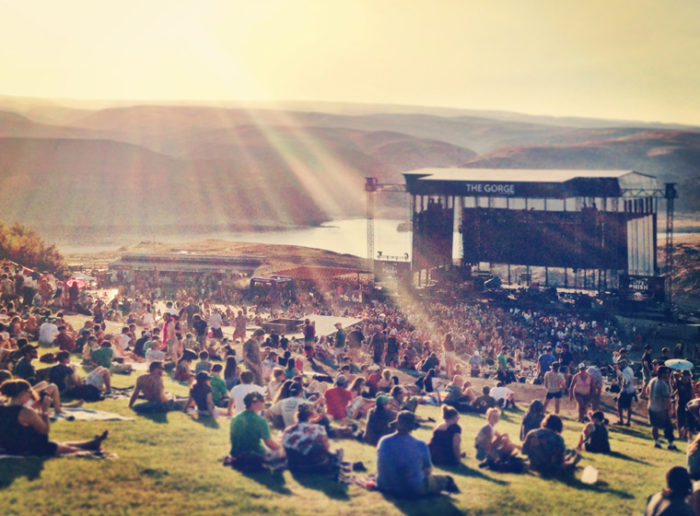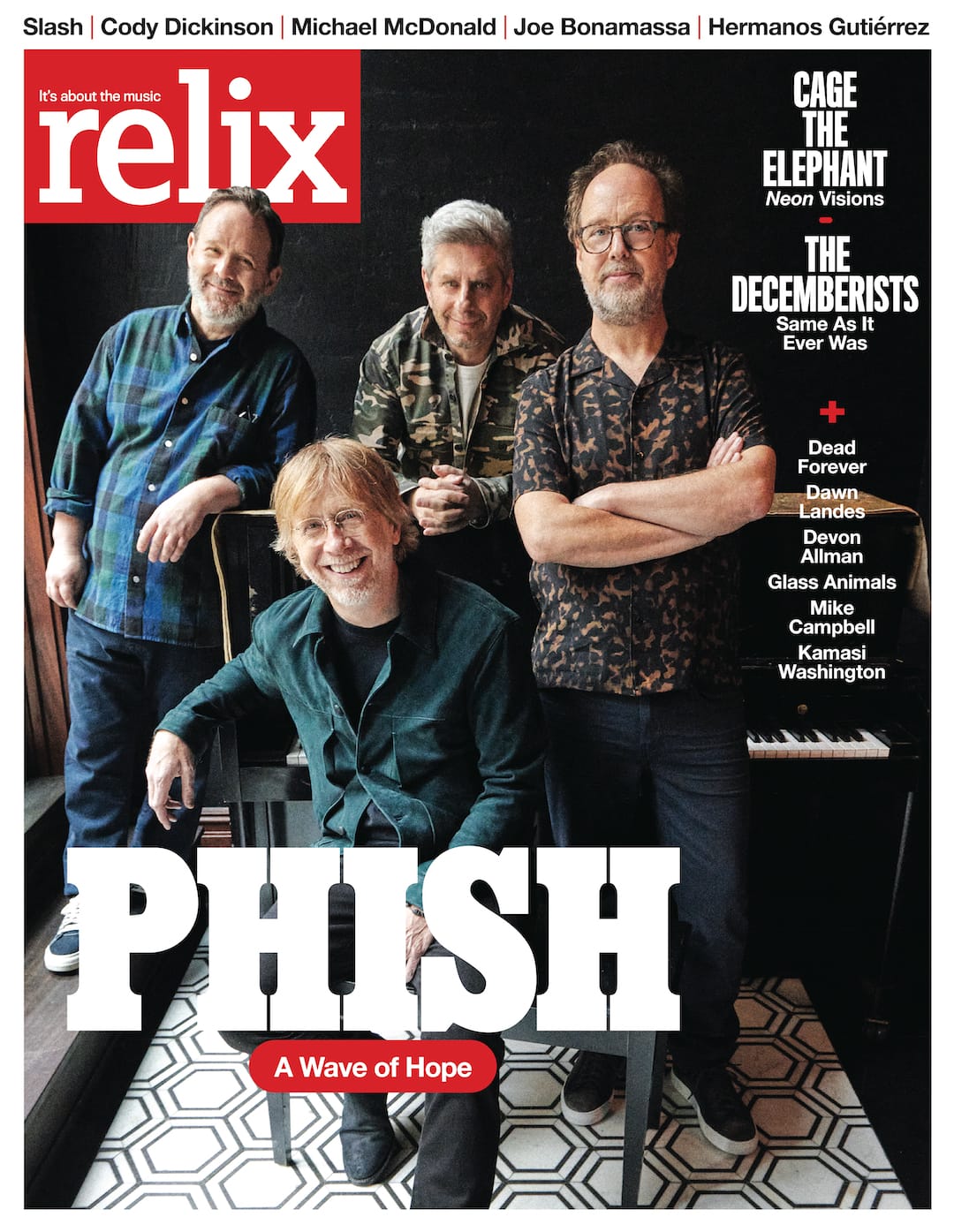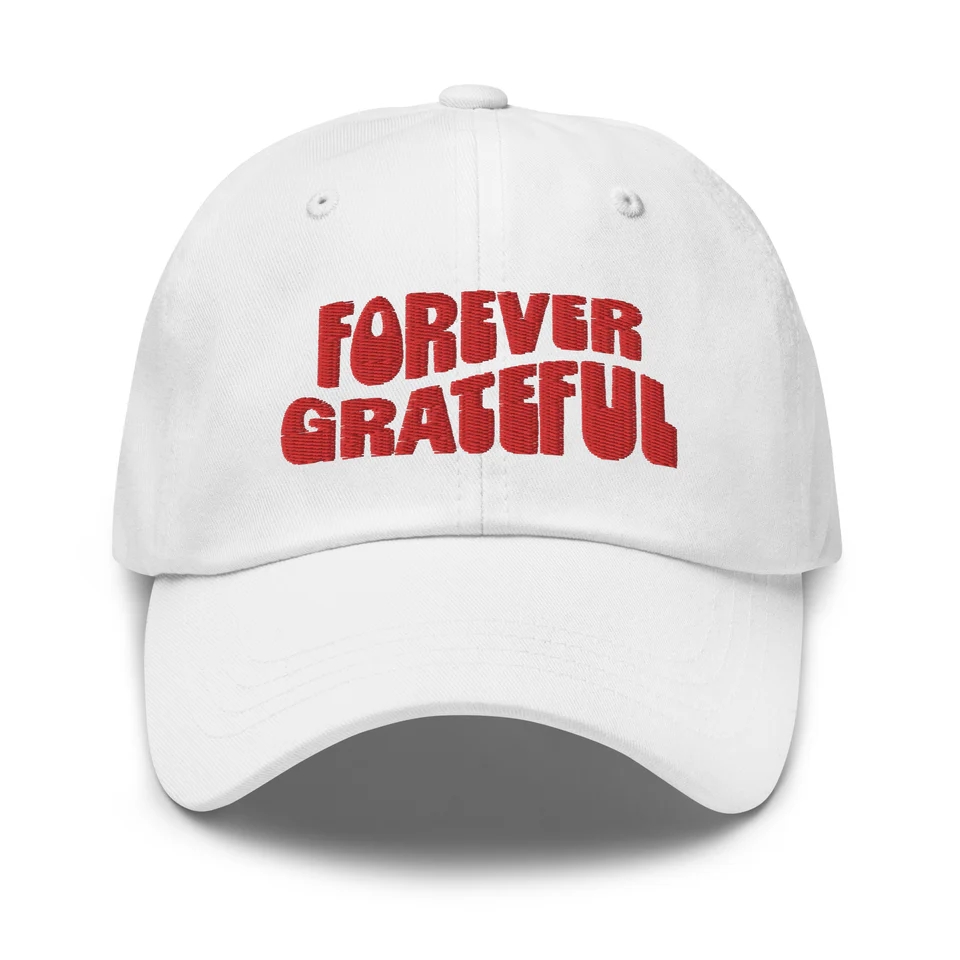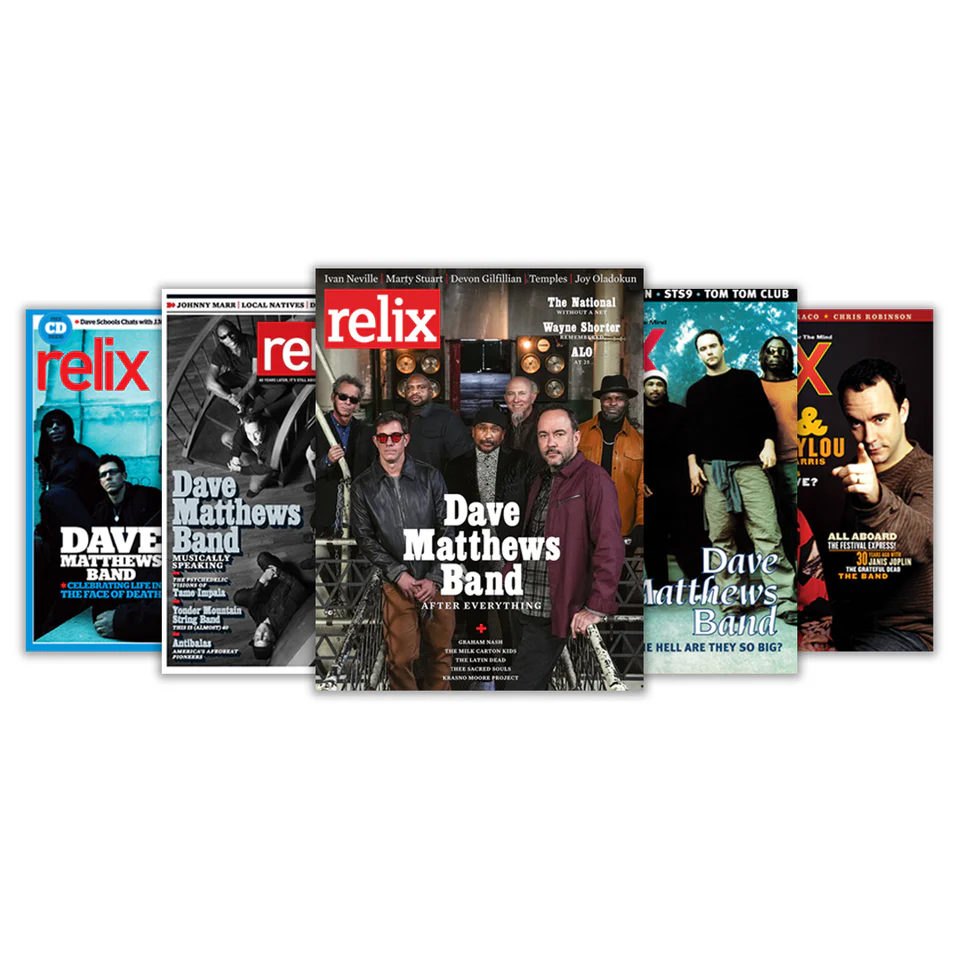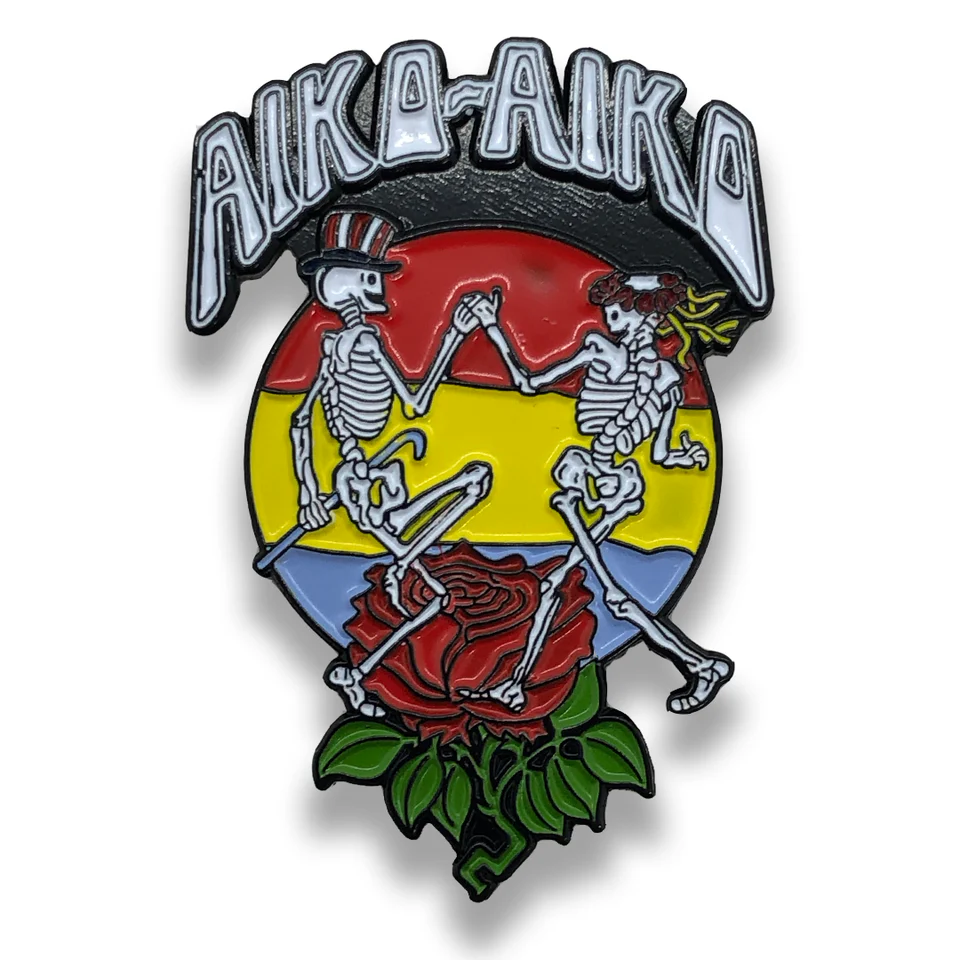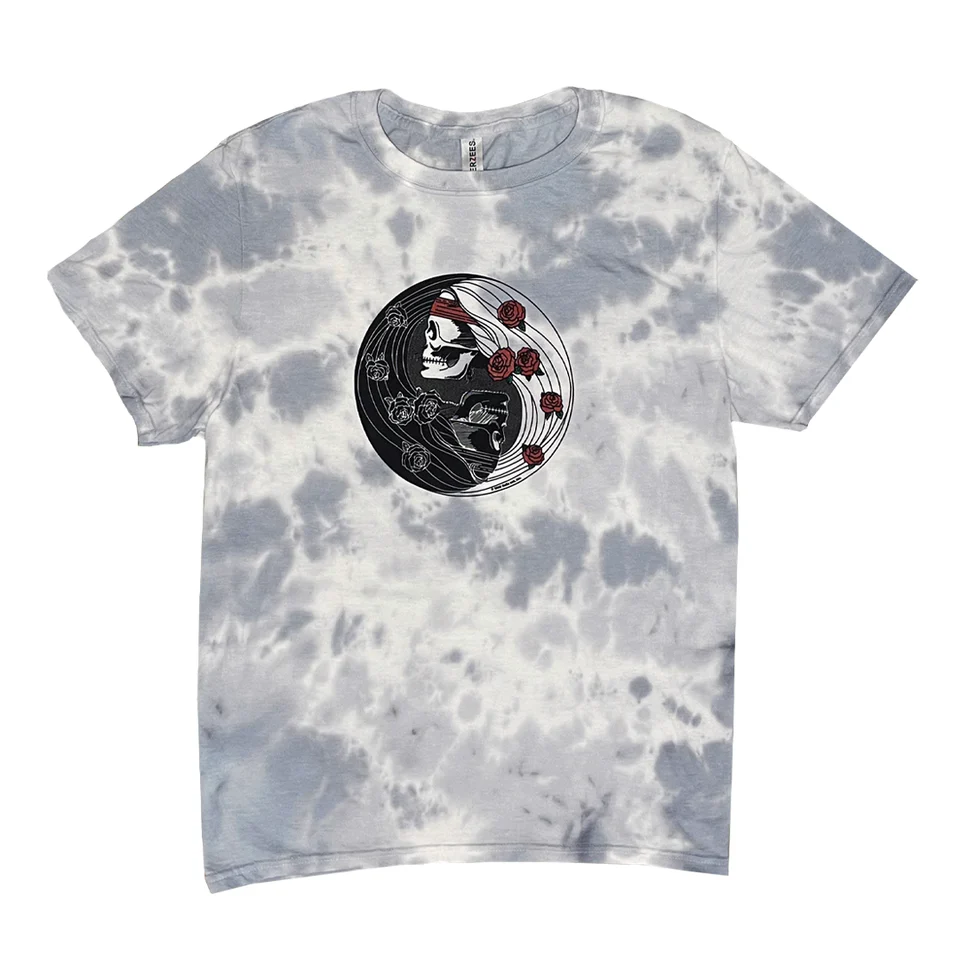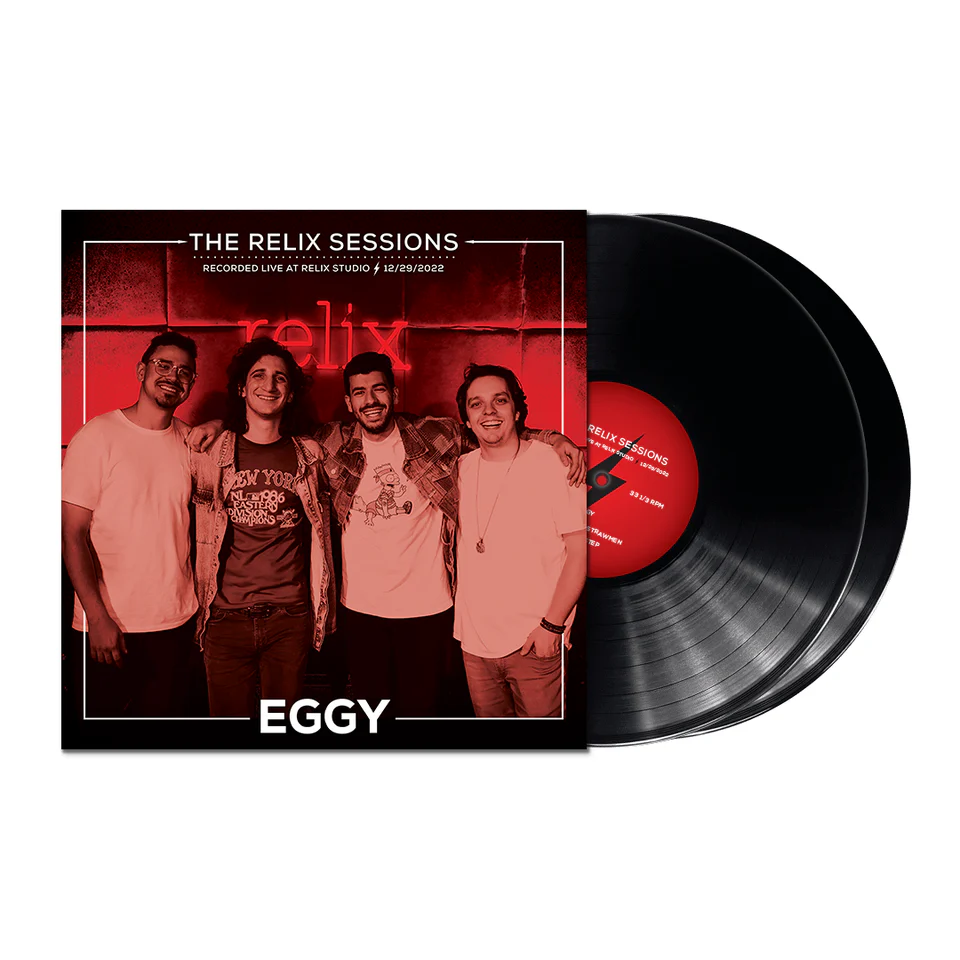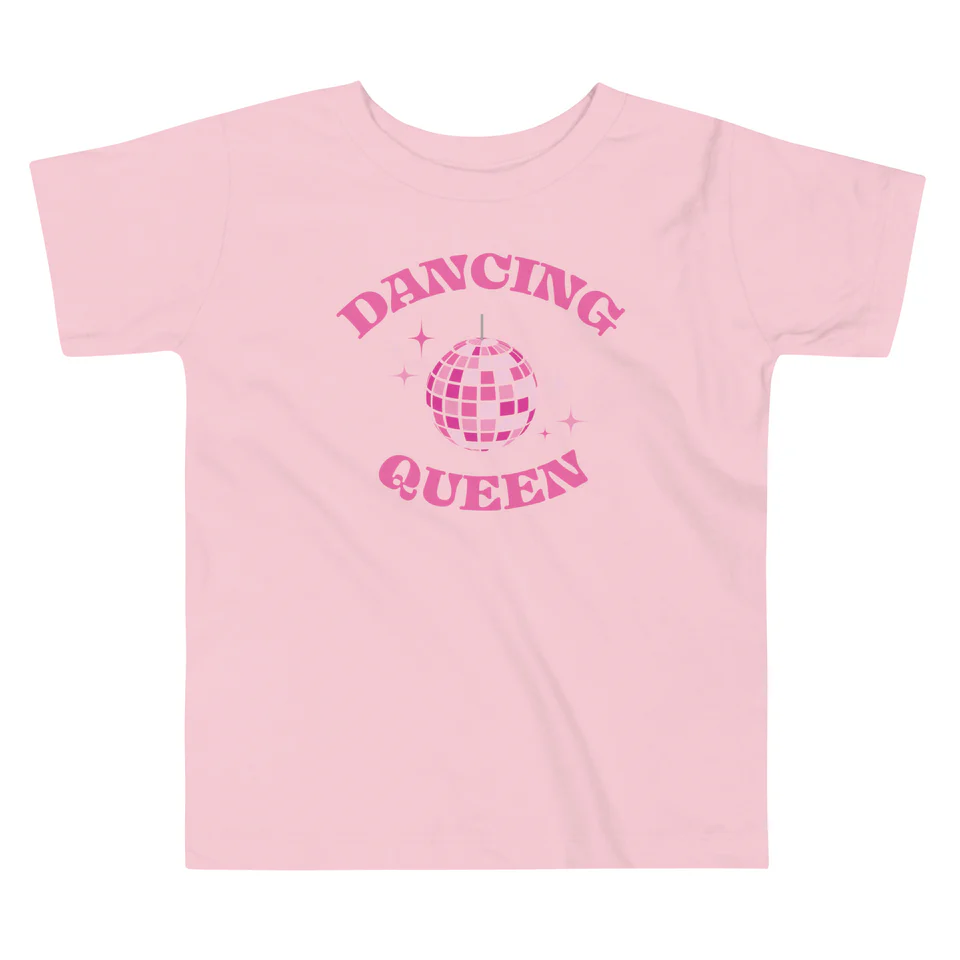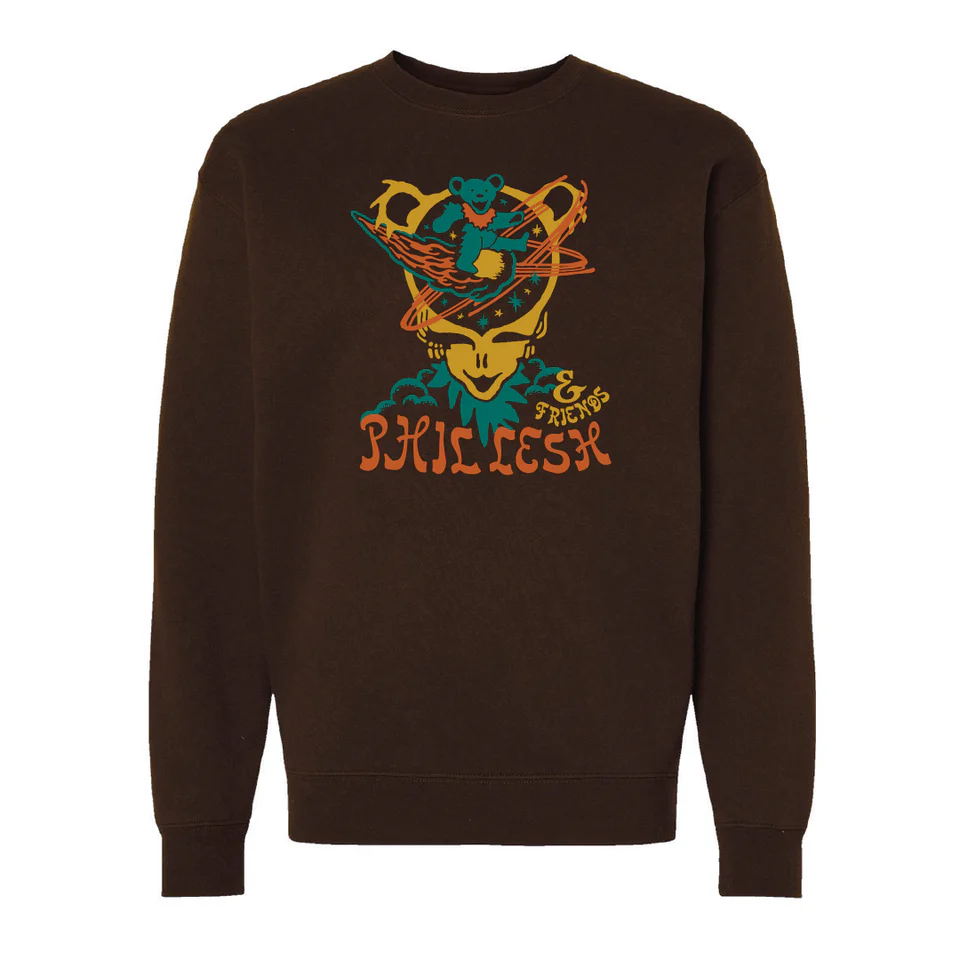Boy. Man. God. Fluff: My Life In The Church Of Phish (Part One)
Jesse Lauter is a music producer, engineer, and mixer who has worked with The Low Anthem, Elvis Perkins, Lenny Kaye (Patti Smith Group), James Blood Ulmer, Blind Pilot, Marco Benevento, Surprise Me Mr. Davis, and Dawes. He is currently producing a tribute album to Bob Dylan’s overlooked 1980s catalog, featuring Bob Weir with members of The National, Gene Ween & Slash, Built To Spill, Craig Finn (The Hold Steady), Deer Tick, Carl Broemel (My Morning Jacket), Blitzen Trapper, Bonnie “Prince” Billy, Langhorne Slim, Reggie Watts, and Widespread Panic.
In this two-part essay he offers an extended look at his longtime musical relationship with Phish as well as his take on the group’s recent West Coast tour.
I saw my first Phish show when I was eight. A few years prior, my older sister Rachel introduced me to the band with their first album, Junta. As a kid, my favorite bedtime “story” was Lewis Carroll’s “Jabberwocky,” so nonsense-songs like “Reba,” fables of weasels named Fee, and tone poems like “Divided Sky” played to my highly active sense of fantasy. I was like Cameron Crowe’s character in Almost Famous, lucky to have an older sister who turned me on to something that would completely alter the course of my life.
Rachel and I tag-teamed and prodded our dad to take us to one of their shows. He caved and chaperoned the two of us and three friends on November 9th, 1995 to Atlanta’s Fox Theatre. So I saw the band in the fall of 1995, perhaps their most celebrated tour, just before they graduated from clubs and theaters to arenas and amphitheaters. Baring witness to Phish playing in 1995 is something I’m very proud of. There is no doubt in my mind this concert was the catalyst for my decision to dedicate myself to music.
As I grew older, Phish assisted my musical discoveries. I spent all my allowance on CDs and many of my purchases were informed by Phish’s influences. If you don’t know much about Phish, I like to describe them as a “consummate music-lover’s band.” Trey Anastasio (guitar), Mike Gordon (bass), Page McConnell (keys) and Jon Fishman (drums) are musical omnivores. With the combination of their musical prowess and cornucopia of influences, they are first-rate genre-benders. Cosmic explorers of music history if you will.
In the format of a rock quartet, Phish hits upon almost every genre– funk, classical, bluegrass, electro, Latin, hip-hop, reggae, barbershop, the avant-garde, gospel. You name it, Phish plays it, and for the most part, with great consistency. Despite what some critics may think, they have exceptional original songs. Some are instrumental epics. Some are goofy ditties. Some are standard and serious. That being said, Phish covers other peoples’ material more than your average band at their shows.They cover classic rock (Led Zeppelin, The Beatles, Little Feat, Frank Zappa), “old cool bands” (Talking Heads, The Velvet Undergound), “new cool bands” (TV On The Radio, Apples In Stereo), jazz standards, and traditional bluegrass. They are probably the only band in the history of rock that can respectfully cover the James Gang, Dizzy Gillespie, Bob Marley, and Bill Monroe in one night while playing their own original material. Simply look at the laundry-list of legendary artists they’ve shared the stage with and you’ll understand the breadth of ground they’ve treaded upon. Phish’s telescope has looked at the entire universe of music and in turn created its own musical solar system.
But I’m not really here to describe their sound to you. I’m here to tell you about my story with Phish and my thoughts on this misunderstood band and their fans as I embarked on their west coast tour this past summer.
A thing to note in my “Phishistory” is that I had a pretty significant gap between my first and second show. The next time I saw Phish was on March 1, 2003 in Greensboro, North Carolina. After my first Phish experience, my parents wouldn’t let me go to the Atlanta show the following year in 1996 (the celebrated Halloween show at The Omni where they covered Talking Heads’ Remain In Light in its entirety) and missed every local show thereafter due to summer camp. So in the nearly eight years between my first and second Phish experience, I took it upon myself to learn everything I could about this band. I spent hundreds of hours dubbing tapes and CDs (on a 1x burner), kept The Phish Companion (the penultimate encyclopedia of the band’s history, including all their setlists) by my toilet, was a consistent poster on “The Rhombus” (a now-defunct online community for fans to discuss everything Phish), learned Trey’s solos by rote or comped rhythm guitar to bootlegs, and became invested in music theory and composition. This was all before I got my driver’s license.
I caught the Greensboro show and then went to two more at Mountain View, California’s Shoreline Amphitheater on July 9 & 10, 2003. During that run however, something felt off. The band wasn’t the same. This wasn’t the Phish that was the source of my inspirations, the one that made me fall in love with music. Much has been said about this period just before “the break up,” and I was too young to understand the issues they were experiencing off the stage. Those problems were clearly translating on the stage, and in the end, I gave up on them. I stopped listening and caring about Phish one year before they called it quits in 2004.
Ultimately, my divorce from the band was positive for my musical growth, just as it was for the band members themselves. I was completely isolated from all things Phish for nearly six years (although I did write an essay about their business practices that got me accepted into college), until I was invited to see the “reborn Phish” at Jones Beach on June 9, 2009. Obviously I was curious, so I went, and then I went the next night, and then again, and again… Phish returned to my heart with a profound force that I couldn’t have anticipated. They reclaimed their position as one of my favorite bands.
Everybody loves a good comeback but there’s something to be said about the return of Phish. In my opinion, they sound better than ever. Sure, what do I know? I saw one show when I was in the second grade and a few others sometime after. But I know how they sounded in all their periods and though it might not be the adrenaline-filled insanity and youthful vigor of the old days, this band approaches music with a grace and maturity they couldn’t have achieved in their twenties and thirties. Simply compare the live recordings of now to the tapes of yonder. Their style is arguably more relevant, because they were a “playlist band” that arrived well before our current playlist culture. In my opinion, Phish is aging like a fine wine. It’s very similar to how people feel about seeing Neil Young in the present than the early years– both started off great but seem to only get better with time. I’ve come across many long-time fans who agree, some of whom work with the band.
So I saw one show in Phish 1.0, three shows in Phish 2.0, and thus far, a grand total of forty-five shows in Phish 3.0 (for those not in the know, 1.0, 2.0, 3.0 are the fan’s demarcations for the three different eras of Phish, synonymous with the eras of the internet’s development). Yet I’d never done a full leg of a Phish tour. So when the band announced their run from The Gorge to Lake Tahoe to San Francisco and concluding at the Hollywood Bowl, I knew this was something that couldn’t be missed.
Even though I have seen them dozens of times, I don’t think of myself as an obsessive Phish fan, at least compared to some, including a majority of my friends. I don’t remember setlists (though I know notable concerts in the band’s history), I don’t know stats, and I don’t go into a show expecting to see the best Phish concert ever or any specific song. I go to each show with an understanding that these are four fallible human beings, just like you and me, who when at their optimum, create a surreal sound with great scope, dexterity, and personality. I generally have a positive feeling after leaving each show because I have faith in this band and what they’re doing. I trust their muse.
It’s important to mention that Phish is approaching their thirtieth anniversary this December. This has meant more attention in the mainstream media, a place where Phish has had their sporadic moments in the sun. There was a recent article in the Huffington Post entitled “Dephending Phish: It’s Not Them, It’s You,” a real turn-off of a title to anyone who isn’t a Phish fan. There was an article in The New Republic entitled “Gone Journophishin,” about Phishhead “Washington insiders” and their private listserve dedicated to the band. There was also a Grantland article entitled “Is Phish A Great Band?,” which to me is a silly question to ask in the first place. Yes, they’re a great band; an extremely significant band in rock history with a legacy that is revealing itself more as time passes. They will undoubtedly be inducted into the Rock ’n’ Roll Hall Of Fame upon first year of eligibility.
But the most revealing piece was an interview Trey did with Jeffrey Brown on the PBS NewsHour, which aired just before the east coast leg of summer tour. In the interview, Brown taps into Trey’s recent endeavors in classical music and Broadway. The complete interview goes way deeper. At one point, Trey addresses the band’s relationship with their fans.
TA: We [Phish] were talking about how lucky we feel to be part of such a loving community and that means the audience as well as the band members. A lot of the people who come see us have been coming for 20, 30 years.
JB: …and they come many times.
TA: And I know them. A lot, I don’t know by name but there’s people that I look out and see, and I really, genuinely feel a connection to.
JB: Really.
TA: Absolutely. I have, as strange as this sounds, relationships with people who stand, like, 10 rows back and dance that I recognize and I walk on stage, and I say, hi, and it’s a good feeling, and we start playing. I have never spoken a word to them.
JB: That strikes me as sounding unusual for a rock band.
TA: Well I know it sounds weird, but it’s the dead-on truth.
JB: What’s the relationship? What do… How do you… How…
TA: It feels like a healthy expression of joy and celebration….Everybody wants to belongto something. Everybody wants to be included and music to me has been a pathway to community and kind of a welcoming. Y’know,an inclusive atmosphere where people can express themselves and be part of something in a healthy way.
A little later on in the interview, Trey expresses his ultimate intent for his audience.
TA: When I’m playing with Phish or when I’m playing with any of the bands that I play with, I watch the audience all night, and I want people to have a good time and I want people to be in a state of release, y’know? It’s a reason for living for me if I see somebody lit up in the audience. That’s enough for me. It’s not really about the band playing well. I want to see somebody momentarily released from the drudgery of normal life.
JB: Really.
TA: I mean that with all sincerity. I think thats probably the underlying theme to all of these musical projects, because it was that for me. Music saved my life when I was young.
JB: You mean literally?
TA: Yes, literally. And when I was old actually. But it’s always sort of been there for me, when things are going wrong…. It’s always been a healthy escape for me and a parachute when things are going wrong. So if I can provide a tiny bit of that for somebody else, nothing could make me happier.
This confirmed something I already knew, but I’m not sure most Phish fans recognize or are comfortable admitting. I believe Phish is a rock’n’roll replacement for church, synagogue, what have you. Trey is the reverend, Page, Mike and Fish are the ministers, and together they have formed the greatest traveling-psychedelic-gospel-rock band imaginable with the intent to release you “from the drudgery of normal life.” And I am not ashamed to confess I am a nearly lifelong member of The Church of Phish.
If you’ve been to a Phish concert, then you know that people attend to achieve a heightened sense of self and community. I’m not saying that’s not the case with other bands, but there is a certain sense of “highness” that comes with a Phish show. There are times when I’m at a Phish concert, observing hordes of people lost in transcendental dance or meditation and it’s hard not to think that this concert is no different than going to church, specifically one where the goal is to reach some form of the Holy Spirit. “The Phish Sound,” specifically within a jam, is based around tension and release, which is why the comparisons to gospel music are not far-fetched. Tension and release is simpatico with sex. You build and build and drive and drive until you reach an enlightened moment, or the peak or…. the orgasm. For this reason, some may view people who follow Phish as “narcissistic and hedonistic and ultimately empty” (a quote from a horrifying 2002 New York Times article comparing Phish fandom to breaking the Second Commandment), but Phish’s positive and historically-informed music, and the generally joyful nature of the audience, debunk this characterization.
The four members form the wheels of a vehicle and the driver, usually Trey, leads the melodic journey (one could make the argument that Jon Fishman, in the all-too-important drummer’s seat, is actually the driver. A band is only as good as its drummer). To my ears, it is no different than hearing a great minister deliver a sermon, yet the difference being it’s not supposed to be about the solo or monologue, but rather group dialogue. In this respect, I often think Phish is like the John Coltrane Quartet for contemporary rock. When they’re on a roll, they’re completely in tune with each other and in turn, the entire congregation– from the freaks riding the rails in the front to the blissed-out folks in the back. But this is not a singular religion with any specific creed or dogma. It is whatever you make of it. It is our own religion where we worship our own spirits. And if they ever preached to us, we wouldn’t want to hear it. Can I get an Amen?
This band’s sound forces you to think and feel big things– majesty, wonder, future possibilities, The Big Picture. A Phish show is therapy for the soul. It reveals and it heals. With the combination of musical diversity, personal histories, community, and a sense of humor, the Church of Phish culminates with a transcendental live experience that really has no equal. It’s a place where you can be comfortable in your own skin, dress in costume even, and no one will judge you for it (dress-up is actually encouraged). I go to Phish concerts to feel good about myself, to experience a higher power that I know I can’t experience anywhere else. We all go to communicate with something buried within ourselves. To break open that big idea that has been brewing inside of us. To realize that your boyfriend or girlfriend is someone you want to be with forever or someone you may need to say goodbye to soon. To say “to hell with this job!” and quit what makes you unhappy. This is why we always go back, time after time, and pay the price of admission. This has been said by many, but Phish is not just a band. It’s a way of life. At this church, the mantra is “sharin in the groove.” The messiah? Fluffhead. The antichrist? Wilson. The story of creation? Boy, Man, God, Shit.
I know comparing a Phish concert to church may be off-putting to some but it’s just the way I see it. I’m also aware of the differences (it’s not like you can go to Trey for moral advice or have Mike officiate your wedding). For the sake of full disclosure, I’ve had a lot experience in houses of worship. I am Jewish and grew up fairly observant in the conservative Jewish movement. I went to a Jewish day school until the 8th grade, where I introduced many classmates to Phish, and went to a Jewish camp for several summers. I am no longer observant but consider myself culturally Jewish. When I moved to New York, one of my first jobs was as a sound engineer at a multi-cultural church in the East Village. This was a very eye-opening experience into the worship service as a production and business. I learned a lot about myself, Jesus, and my feelings about organized religion. I held onto that position for five years, all while I did records and tracks for The Low Anthem, Elvis Perkins, and Marco Benevento, among others. In 2011, I left the church gig for an Audio-Visual job at a synagogue in midtown Manhattan, where I continued to work as a record producer (maybe you’ve heard the record business isn’t the most lucrative these days. The God business is doing just fine).
I quit my job at the synagogue this past May to commit myself to music-production full-time, subsequently clearing my schedule for summer tour. I hit the road with my friends Aaron, Julian, and Trevor, and met up with plenty of others along the way. I first met Aaron and Trevor at Phish’s stand at Bethel Woods in 2011. Julian is Aaron’s brother and we met at the Saratoga Performing Arts Center in 2012.Our friendships transcend the label of “Phish friends,” as we’ve shared wonderful times together outside of church, but we met for one reason– Phish.
To be continued…


